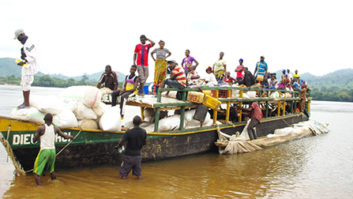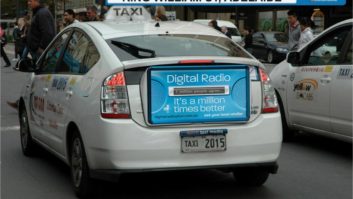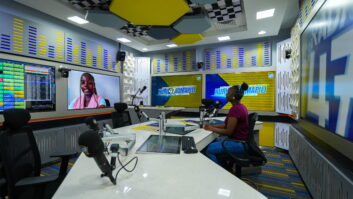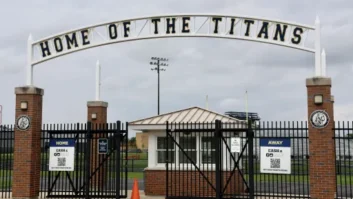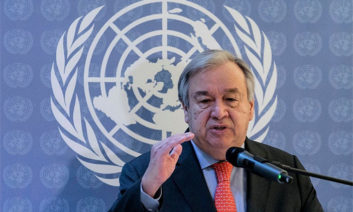
As the United Nations celebrates its 75th anniversary, it is important to hail the critical role that radio continues to play towards the achievement of sustainable development especially in Africa.
Indeed, radio in Africa is doing outstanding job of keeping people informed and engaged in different aspects of life including governance, development, social integration and peace.
Radio has been important in the implementation of a new set of global goals — Sustainable Development Goals that world leaders adopted in September 2015 at the United Nations General Assembly. These SDGs establish the framework for joint global action on poverty, inequality and climate change until 2030.
[Read: Africa’s Youth Making Waves on Radio]
Use of radio in the implementation of SDGs has improved engagement of people and different actors, and hastened the attainment of the goals.
In his message to mark the World Radio Day this year, the United Nations Secretary General Antonio Guterres recognized radio as a powerful communication tool and low-cost medium that has played an important role in efforts to promote development and peace.
“Even in today’s world of digital communications, radio reaches more people than any other media platform, conveys vital information and raises awareness on important issues” the U.N. chief said, adding that “As we strive to achieve the Sustainable Development Goals, radio has a key role to play as a source of information and inspiration alike.”
Different studies show that radio is still the dominant mass medium in Africa with the widest geographical coverage and highest audience. At present, African’s news and information-seeking behavior seem to depend mainly on radio.
Indisputably, radio remains a major source of news and entertainment in Africa. Over the years, radio has proven itself as a developmental tool, particularly with the rise of community and local radio outlets that broadcast content that is popular and relevant to the listeners.
Radio is important for people in Africa. In some cases, radio broadcasting provides a vital lifeline — broadcasting news and new ideas and transmits essential information into people’s homes, villages, schools, hospitals and workplaces among others.
One of the best examples of how radio has been used especially for peace building is the Democratic Republic of Congo. The second-largest country in Africa had been mired in conflict for decades and is still recovering but thanks to efforts from different actors including a United Nations peacekeeping missions radio station that has been offering vital information about peace and development, the future is brighter.
Radio Okapi has millions of listeners and is widely credited for having helped unify the country, smoothing the political transition, and contributing substantially to citizens’ participation in elections and peace processes.

In this time of coronavirus crisis, Okapi has been providing education via radio — on-air classes aimed for the 22 million children stranded at home because of COVID-19.
As the UNICEF Representative in DRC Edouard Beigbeder noted and it is true, education is a right and a child’s place is in school so distance learning like what Radio Okapi is providing offers students the opportunity to enjoy this right.
In other parts Africa, radio programs have become an effective tool to help fight extreme poverty. Radio is used creatively for anything from education to campaigning to community building. It is a low-cost way to relay information to remote communities and vulnerable people.
In Mali community radio stations have been useful in efforts to enhance life in poor regions. Radio Daande Douentza, serving a semi-arid region where most of the population consists of poor farmers or herders, broadcasts and transmits announcements of development issues, education and community news along with entertainment.
According to Save the Children Fund, before Radio Douentza’s launch a mere 6% of the local farmers were marking trees and managing naturally occurring harvest varieties. Since the establishment of agricultural programming, that figure has climbed to 44% among the same group of farmers. Furthermore, radio announcements helped to bring about an increase in enrollment in literacy courses by 120%.
Tanzania has one of the most vibrant media landscapes. Radios has proved to be effective in providing access to developmental information, especially to the majority of the population who are not connected to the electric grid, those who do not own televisions, or those who lack access to mobile phones.
Community radio broadcasters like Lake FM, Hits FM, Ice FM and Mkoani FM provide opportunities for more inclusive sustainable development. They inform people about what is going on in their community and in the world.
Similarly, radio is still the most popular source of news and information in Zimbabwe, especially in rural areas. According to Media Institute of Southern Africa in Zimbabwe, radio serves as a convenient information-sharing platform that is more popular and easily accessible than other media.
Public, commercial and community broadcasting are all important because they can serve different audiences and needs. However, community radio stations are still to be licensed and legally recognized in Zimbabwe — there is strong case being made — for the licensing of community radio stations, to ensure that marginalized communities are effectively included in national conversations that take place on national publicly owned radio stations such as Radio Zimbabwe, Classic FM, Power FM, and National FM.
In Togo, where the media industry has been experiencing a boom since the 1990s, local radio stations have continued to be a powerful means of communication, particularly to smallholder farmers located in remote rural places.
In Benin, radio access has improved educational performance and literacy. Radio access, studies found, has a substantial effect on children’s educational performance. The literacy scores of school going children are significantly higher in villages with greater access to community radio.
Radio can enhance accountability and public provision. Citizens who are more informed about the benefits of public policies could use this knowledge to demand greater benefits from government. Greater radio access increases household exposure to information and about government provisions — the exposure potentially increases citizens demand for government services.
A key feature of media markets in northern Benin is the proliferation of community radio stations. These stations were established with the support of private and government donors to promote democracy and local collective action.
In Malawi, most people rely on radio as their primary source of news because they do not have access to television or newspapers. As such, radio has played a critical role in educating and informing rural communities across the country.
Also, radio stations like Nkhotakota and Mzimba have improved governance and development in Malawi. Radio programs have been instrumental in raising ordinary people’s awareness to existing problems and influencing them to do something about their situation.
As Canadian Journalists for Free Expression has remarked, radio continues to be a widely used medium for reporting both local and international news. Advances in technology may have led to the emergence of a broad range of media outlets and platforms, but it has also made the radio more accessible for populations that lack access to other means of information technology, which is why it is still very much relevant today.
Radio broadcasts can provide real-time information, 24 hours a day to provide the most recent updates to listeners. Stations have the ability to reach across borders and become a source of information where reliable news is scarce. When access to the internet is blocked and phone lines are cut, people can still search the airwaves for trustworthy sources. Even electricity is not a necessity with battery operated and hand-cranked radios available.
Radio is a vital lifeline for many people and it is integral to development. It is one of the most important channels through which people in Africa find information, knowledge and new ideas — imagine and solve problems.
Raphael Obonyo is a public policy analyst. He has served as a consultant with the United Nations and the World Bank. Also, he’s a writer and widely published in Africa and beyond. An alumnus of Duke University, he has authored and coauthored numerous books, including Conversations about the Youth in Kenya. Obonyo is a TEDx fellow and has won various awards.
